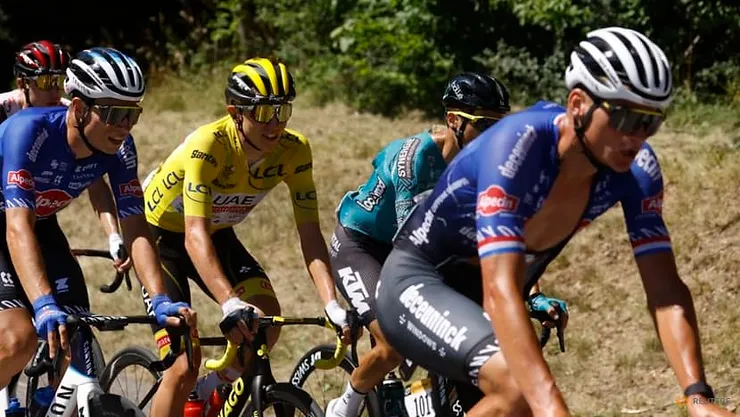By: Ray Zhao
The Tour de France is an epic peloton race that has long been the pride of France. Elite cyclists from all over the world travel long distances to compete and see who is the fastest.
They race along never-ending flat fields, climb craggy high mountains, descend into majestic valleys, and ride through culture-rich cities, all of which are vital parts of French scenery.
However, this year, due to increasingly warmer European summers, Jonas Vingegaard of Denmark won first place in general classification on a day with highs in the nineties, 20 degrees higher than the average July high for Paris. On the way to the French capital, he and many others participating in the strenuous race passed drought-parched farmland, melting glaciers, burning wildfires, and other signs of climate change that have plagued France and the rest of Europe for many years.
The extreme heat during parts of the race in Southern France caused organizers to take extraordinary precautions. Rules that once prevented riders from rehydrating in the first miles of the race were repealed by officials. Organizers also went out of their way to spray water in order to keep roads from “melting.”
To cope with the dangerous heat, Tour de France teams used strategies from peloton competitions in Australia and the UAE. The Washington Post’s Rick Noack reported: “before the beginning of a stage, cyclists … [wore] vests of ice packs. When racing, they … [maximized] the cooling power of the wind with jerseys that let the air flow through more freely and helmets that have more openings. Afterward, they [brought] their body temperatures down with … baths as cold as 53 degrees Fahrenheit.”
Romain Bardet, a French cyclist, says that his 10th Tour is “unlike anything [he] has ever experienced”. A few days into the competition, Bardet fell behind at a critical stage because he “roasted” on his bike. Many instances of heat-related losses have also been reported, with some being even more serious. Rider Alexis Vuillermoz, for example, collapsed in the Alps and was treated on-site for heatstroke.
Niall Turnbull is a local in Igon where he watched the Tour de France go by. He says the increasing heat makes life in France feel like Australia, where he lived before. “[In France], people are still used to doing stuff in the middle of the day. That might start to change,” he said.











